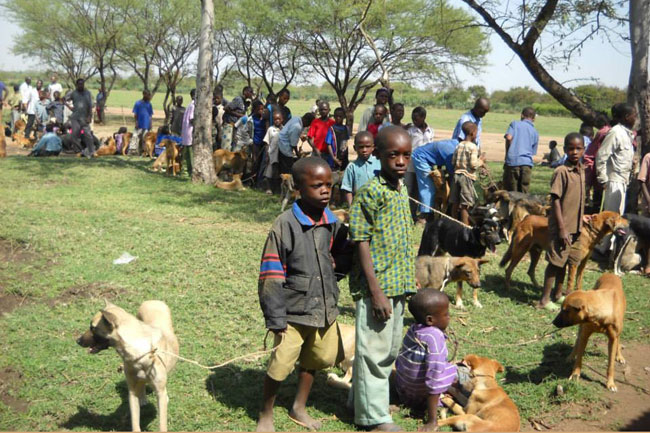UN stresses dog vaccinations, public awareness as key to eliminating rabies
“Rabies is preventable!” the UN Food and Agriculture Organization, the World Health Organization (WHO) and the World Organisation for Animal Health (OIE) said in a joint statement issued on the occasion of World Rabies Day, which is observed on 28 September.
They stressed that community participation, education and public awareness are important elements of successful rabies control programmes, and mass vaccination of dogs is critical.
“Communities need to take responsibility for their dogs, prevent dog bites and know what to do when bitten,” they stated.
The statement noted that many of the estimated 60,000 people who die from rabies every year are children who are bitten by rabies-infected dogs.
“More than 100 countries report cases of rabies in dogs, putting people at risk. Vaccinating at least 70 per cent of dogs breaks the cycle of transmission in dogs and to humans. Rabies programmes need to incorporate free-roaming and street dogs with options for dog population management.”
Safe and affordable dog rabies vaccines are available, and countries embarking on rabies elimination need easy access to quality-assured dog vaccines for vaccination campaigns and for outbreak management. Vaccine banks can help facilitate procurement and deliveries.
The partners pointed out that a person who is bitten by a rabid animal still has the chance to survive if the wound is cleaned immediately and thoroughly with plenty of water and soap and post-exposure prophylaxis is provided in time.
Preventive rabies vaccination can be given to people at high risk of exposure from domestic or wild animals, such as animal health workers, veterinarians or laboratory personnel, to protect them before they are exposed.






